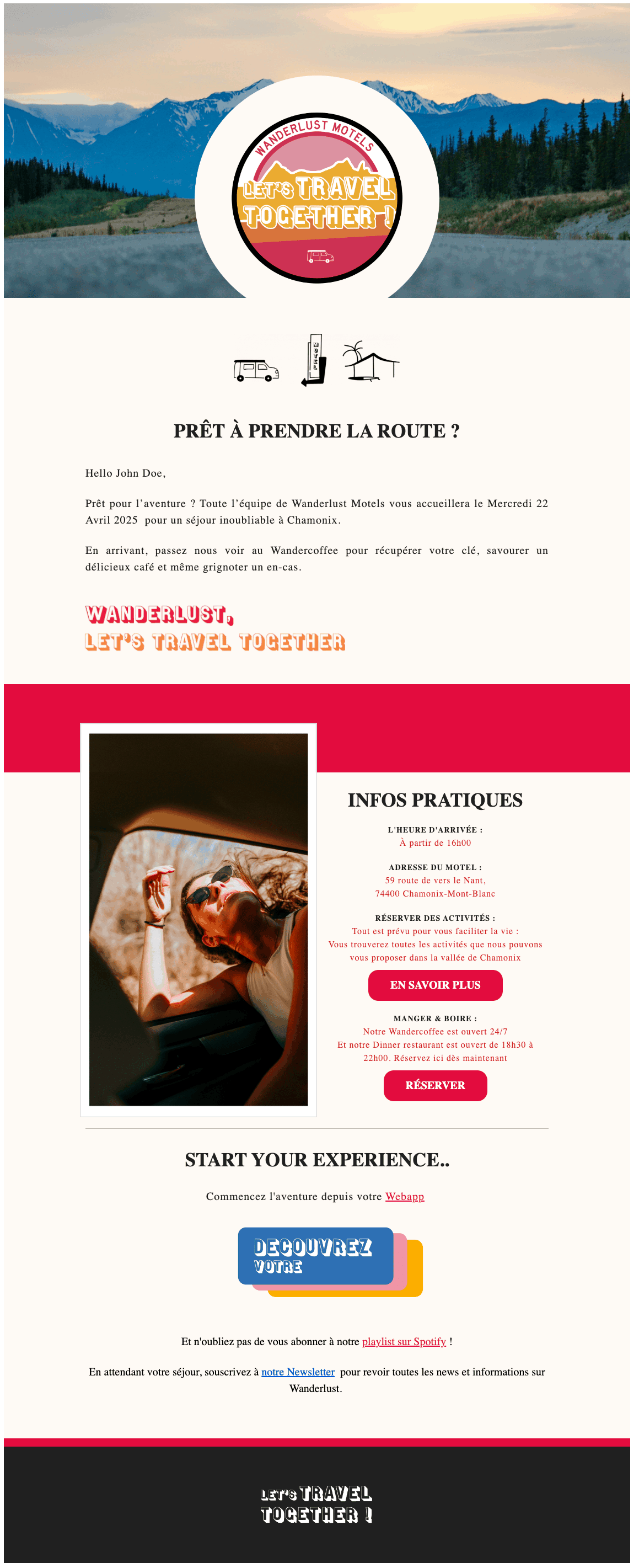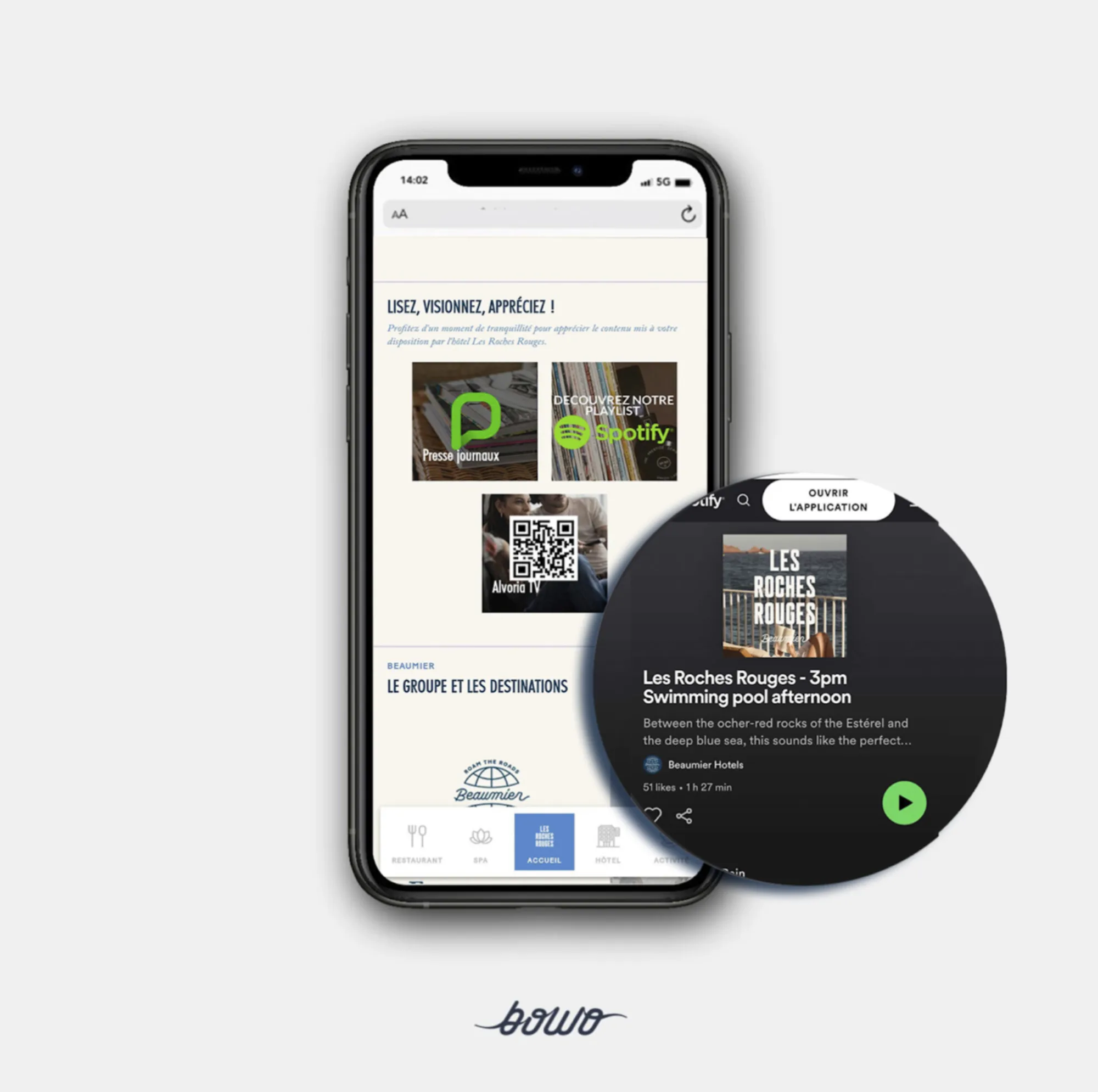They arrive, stay, and then disappear into the unknown. Does this sound familiar? It's a scenario all too common among hoteliers: those customers who walk through the door once... and never come back.
A one-night stand, a customer relationship that abruptly ends. Yet, behind every silent check-out lies a story, a reason.
In the hotel industry, building loyalty is an art. An art that requires more than just a comfortable bed and a warm welcome. So, what truly makes the difference? Why do some customers always come back while others vanish after their first visit?
We are going to reveal five major reasons why your customers may choose not to return. And it may not be what you think.
Ready to change the game? Let's go!
1. Unfriendly or Ineffective Staff 👀
"We don't get a second chance to make a good first impression." This is an immutable truth, especially in the hotel industry, where each interaction can shape a customer's perception of their entire stay, starting from the reception.
Indeed, sometimes a small mistake is enough for your staff to be the cause of negative reviews. According to ALICE, 62% of dissatisfied customers claim that unfriendly staff is the source of their frustration.
A somewhat curt response, a service not rendered, or inappropriate language can create a rift between the guest and the team.
Yet, this relationship is the foundation of everything in the hospitality industry! A positive impression during the first stay is a powerful driver of loyalty. In fact, the vast majority of customers book a second stay at the same hotel simply because they enjoyed the customer service.
To ensure you have a staff with impeccable service, several options are available:
- Invest in the training of your staff. According to a 2017 survey by Axonify, 92% of adults (Americans) say well-planned training improves their engagement at work.
- Conduct "mystery reservations." Companies specialize in anonymous reservation taking. Note: such practices are not only meant to identify shortcomings; you can also reward a job well done. Don't be stingy with compliments for your staff!
- Implement tools that are suitable and facilitate the daily work of your teams. Your property management system (PMS) is an example of a tool that makes operations smoother and more efficient. A Guest App can also be useful, allowing online check-in, simplified orders and reservations, etc. The time saved is significant; it is much easier for staff to be warm and friendly when they are not stressed and/or frustrated.
Keep in mind: Ensure that your PMS connects to your other systems so that you don't have to manually duplicate data.
2. No meeting expectations 👀
"Knowledge is acquired through experience; everything else is just information," said Albert Einstein. So, ensure that your "information" is not misleading. The gap between what is promised and the actual experience during the stay inevitably leads to dissatisfaction.
Cleanliness is a major point, an absolute red flag.
A study conducted by P&G ProfessionalTM reveals that 78% of hotel customers consider cleanliness the most important factor influencing their choice of a place to stay.
The study indicates that:
- Dirty sheets (71%) are most likely to drive away a customer,
- Followed by a disgusting bathroom (69%)
- Or a malodorous room (65%).
Another important expectation is connectivity. In a world almost exclusively focused on digital aspects, these technical features are crucial. 66% of the French consider wifi as a satisfaction element for their stay. Investing in a reliable network is a must-have.
In any case, keep one thing in mind. Don't promise too much! "Under Promise, Over Deliver." Always set an upward anchor point. For example, announce a 15-minute wait time for room preparation when you can actually prepare it in less than 10 minutes. This way, the hotel exceeds the customer's initial expectations by providing a faster service than announced. This contributes to creating a positive experience for the customer and strengthens their satisfaction with the establishment.
3. Inconsistency in the quality and service across hotels of the same brand. 😳
Consistency is essential, especially for hotel chains or well-known brands. Inconsistent experiences during different visits to different locations within the same hotel group can lead to disappointment and a loss of trust.
>> Download your white paper: "Customer Loyalty, a Challenge for Hotel Groups"
This desired brand identity is made possible by a number of crucial points.
Starting with the standardization of processes. It is crucial that the "routine" is identical, allowing the customer to navigate and maintain their habits. Staff training should also be uniform for all teams in all hotels. Codes, attitudes, language – everything must be consistent.
It is necessary for hotels operating across multiple sites to greatly benefit from centralized technological solutions. It would be problematic if one hotel is working with the latest CRM while another hotel of the same brand is still using Excel.
To go further, it is recommended to ensure that the tools used are configured for multisite management.
However, some flexibility is still allowed and even advised. It allows establishments to customize services based on local needs while maintaining consistency with the brand's quality standards.
This may include region-specific offers or local events. This approach allows for deeper connections with the local clientele while reinforcing alignment with the overall brand identity.
4. Lack of Connection with Your Brand 🔗
Often, customers go through OTAs (Booking, Last Minute...). These customers are not in direct contact with you, the hoteliers. You don't have real control over the relationship with these customers. This dependence is a real problem because the connection between the customer and the establishment must be established at the time of booking, well before the stay.
These indirect reservations do not allow you to personalize your communications. However, according to McKinsey, 71% of customers expect brands to approach them with personalized messages or services, and 76% are frustrated if this does not happen.
Make sure to obtain customer data and make good use of it. Seize the opportunity to connect with your customers in a personalized way, such as sending pre-stay questionnaires or welcome emails, for example. But not only that, invite them to subscribe to your newsletter, follow you on social media.
Keep in mind: be measured in sending emails and communications, or you risk being perceived as a spammer.
>> Read our article: Practical Guide to Email Marketing for Hotels

Example of a welcome email created using the Bowo platform.
5. The lack of unique and memorable experiences.🤩
45% of hotel guests express weariness with the uniformity in the hotel industry, including independent establishments. They criticize excessive repetitiveness in decor and services, as well as overly bureaucratic and/or standardized check-in procedures - Coach Omnium, 2022.
It is crucial to leave a lasting impression on guests. Make their stay memorable. It's no longer sufficient to offer just a room and a meal. Traveler expectations are evolving: they increasingly seek experiences, want to create memories, desire connections with local populations (such as hotel staff), and crave authenticity.
What could you implement to make their stay unique? A yoga class with a renowned coach? A cooking workshop with the chef? A hike off the beaten tourist paths?
Also, work on the identity of your hotel. Create an atmosphere, a unique vibe for your establishment. As we've mentioned before, memories are created through emotion, through the combination of all our senses, so think experiential marketing.
>> Read our article: Hospitality - Attract and Retain Guests Through Experiences"

Also, work on the identity of your hotel. Create an atmosphere, a 'vibe' unique to your establishment. As we've mentioned before, memories are created through emotion, through the combination of all our senses, so think experiential marketing.
Read our article: Hospitality - Attract and Retain Your Guests Through Experiences
Photo credit: Creation of a specific playlist at Les Roches Rouges Hotel
Let's recap,
Bringing back customers is a real challenge. To achieve this, you will need to:
. Have an efficient, pleasant, and trained staff
. Meet the expectations of increasingly demanding customers
. Maintain consistency in the quality provided unique to your chain or group.
. Create a connection with the traveler even before their arrival on-site
. Make the experience you offer memorable
Now that you know all of this, all that's left is to implement it. Get ready to see, revisit, and revisit certain customers!"
Similar articles
